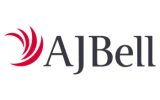Find a Pension Plan
To help you save for your retirement we have selected some great pension plans whether you are starting out or have existing pensions that you want to consolidate into a new plan.
Compare Self Invested Personal Pension Providers (SIPP)
Like to make your own investment decisions on how you invest your pension money?
A self-invested personal pension is a great way to save for retirement with significant tax benefits. You choose what to invest in and when and can contribute in lump sums or with a regular savings plan.

A low cost award-winning SIPP that gives you a choice of over 40,000 investments; Selected funds; Ready made portfolios.
Sipp fee: £5.99 pm – assets up to £50,000, £12.99 pm – assets over £50,000

Offering commission-free DIY investing from a choice of 700 ETF’s, or low-cost professionally managed income or growth portfolios built for you
Sipp fee: 0.15% for your InvestEngine SIPP, capped at £200 per year, plus the costs of your investments — commission‑free for our DIY portfolios, or add a Managed portfolio for 0.25% a year

Thousands of funds to choose from; Select 50 – Browse a list of expert picks. Pathfinder – Risk profiled fund options. Investment Finder – Search 1000s of investment ideas.
Less than £25,000: 0.35% if you have a regular savings plan or £90 (£7.50 a month) if you don’t
£25,000 or more but less than £250,000: 0.35%
£250,000 or more but less than £1 million: 0.20% – and you will automatically qualify for Fidelity’s Wealth Management Service benefits
£1 million+: 0.20% a year for the first £1 million and no service fee for investments over £1 million
Important information – SIPP investors need to be happy to make their own investment decisions and understand that investments can rise and fall in value. It’s possible to get back less than you pay. You’ll usually need to be at least 55 (rising to 57 from 2028) before you can access the money in your pension. Pension and tax rules can change and any benefits will depend on your circumstances. Before transferring a pension you should always check the costs involved first and whether you’d lose any valuable benefits. This information is not personal advice. If you’re not sure what’s best for your situation, you should seek advice.
Pension Portfolio Providers
Not sure what to invest in? Find too much fund choice confusing? Let the experts make the decisions on your behalf
A number of pension providers offer a managed pension service. You choose from a small number of portfolio choices based on factors such as investment types, attitude to risk etc, and they then manage and monitor your pension investment on your behalf.

Why is setting up a pension plan important?
At some point, you will need to stop working!
- Whilst your State pension will provide a certain level of income, it is unlikely to be enough for you to live on to give you the lifestyle you want.
- The reality in the UK is that people are not saving enough for their retirement. According to Hargreaves Lansdown in research carried out in 2022 approximately 60 percent of people in the UK are not investing enough to provide an income in retirement that will meet their needs.
- Making regular contributions from your salary into a private pension means you can reduce the likelihood of not having enough to live on when you retire. The earlier you start doing this, the better.
What are the benefits of setting up a pension plan?
- Tax relief is available for your pension contributions: up to a certain amount, the government adds 25%. You can claim even more if you’re a higher or additional rate taxpayer.
- Employers are legally obligated to contribute to workplace pensions on behalf of their employees. Not only do you get tax relief, but you also get contributions from employers.
- However, there is more to it. As pension investments are tax-free, you won’t incur income tax or capital gains tax on dividends you receive from shares or on profits you make from your pension pot investments. Pension withdrawals have income tax implications, however.
How do pension contributions work?
The government makes a tax refund to your personal or workplace pension.
- You receive government pension contributions according to your income tax bracket. Pension providers automatically claim basic rate contributions on your behalf and add them to your pension pots.
- If you are a higher rate taxpayer or additional rate taxpayer, you can claim further tax relief through your annual tax return.
- If you are a basic rate taxpayer, the government adds £25 to your pension pot for every £100 you pay in, so you only need to contribute £100 to receive £125.
- The maximum tax relief on pension contributions is £40,000 for 2022/23; most people get this up to 100% of their salary. There is a tapered tax relief limit for higher earners.
How do I withdraw pension benefits?
Current rules allow you to access a workplace or personal pension at age 55.
- You can withdraw up to 25% without paying tax, and you’ll be charged for subsequent withdrawals at your regular rate
- It is possible to buy an annuity with all of the money, which will provide you with a guaranteed income for the rest of your life
- Your pension fund can be reinvested to generate income as you need it
Why is setting up a pension plan important?
At some point, you will need to stop working!
- Whilst your State pension will provide a certain level of income, it is unlikely to be enough for you to live on to give you the lifestyle you want.
- The reality in the UK is that people are not saving enough for their retirement. According to Hargreaves Lansdown in research carried out in 2022 approximately 60 percent of people in the UK are not investing enough to provide an income in retirement that will meet their needs.
- Making regular contributions from your salary into a private pension means you can reduce the likelihood of not having enough to live on when you retire. The earlier you start doing this, the better.
What are the benefits of setting up a pension plan?
- Tax relief is available for your pension contributions: up to a certain amount, the government adds 25%. You can claim even more if you’re a higher or additional rate taxpayer.
- Employers are legally obligated to contribute to workplace pensions on behalf of their employees. Not only do you get tax relief, but you also get contributions from employers.
- However, there is more to it. As pension investments are tax-free, you won’t incur income tax or capital gains tax on dividends you receive from shares or on profits you make from your pension pot investments. Pension withdrawals have income tax implications, however.
How do pension contributions work?
The government makes a tax refund to your personal or workplace pension.
- You receive government pension contributions according to your income tax bracket. Pension providers automatically claim basic rate contributions on your behalf and add them to your pension pots.
- If you are a higher rate taxpayer or additional rate taxpayer, you can claim further tax relief through your annual tax return.
- If you are a basic rate taxpayer, the government adds £25 to your pension pot for every £100 you pay in, so you only need to contribute £100 to receive £125.
- The maximum tax relief on pension contributions is £40,000 for 2022/23; most people get this up to 100% of their salary. There is a tapered tax relief limit for higher earners.
How do I withdraw pension benefits?
- You can withdraw up to 25% without paying tax, and you’ll be charged for subsequent withdrawals at your regular rate
- It is possible to buy an annuity with all of the money, which will provide you with a guaranteed income for the rest of your life
- Your pension fund can be reinvested to generate income as you need it
Looking for retirement advice?
Getting advice on your retirement options can be crucial in aiming to meet any expectations you have about your income in retirement.
There is a lot of value in fully considering your retirement options and investment strategy for pension savings.
Good financial planning is necessary to ensure that you enjoy an adequate retirement income to ensure that your pre-retirement living standards are not compromised.
If you have private pensions how your pension funds are invested will also be important, with regular reviews of your pension recommended to ensure you are on track to hit any targets for future earnings.
The underperformance of a pension fund may require increased contributions or a change in strategy, while pension legislation may also be a factor to consider.
Under current legislation, pension funds can grow tax-free and at retirement, you have the option of taking some of the cash tax-free. The balance of the fund can either be invested in a pension drawdown arrangement or in a traditional or investment annuity arrangement. Pension income is subject to tax at your personal tax rate.
There is no time like the present to start planning for retirement.
We work with trusted pension advisers to provide a personal financial planning service for people just like you, who use the Fair Investment site. They have extensive experience in helping people plan for a stronger financial future.
- There’s no pressure to act on their advice – You’ll have the time you need to decide if you want to act on their recommendations, and will only pay a fee if you do
- You can speak to an adviser without even leaving your home – via an appointment over the phone or online
- Free 15 minute initial appointment and you’ll only be charged if you decide to proceed with the recommendations provided
There are no tables for this criteria







